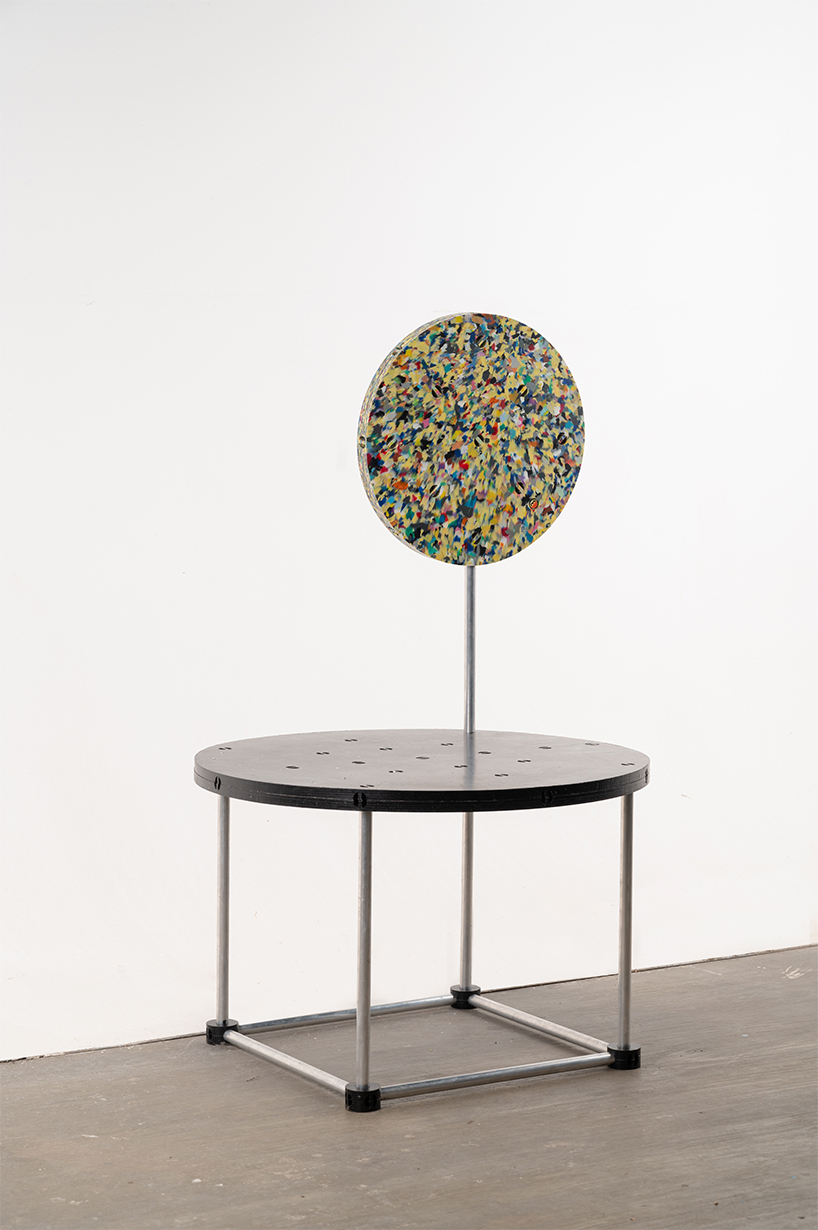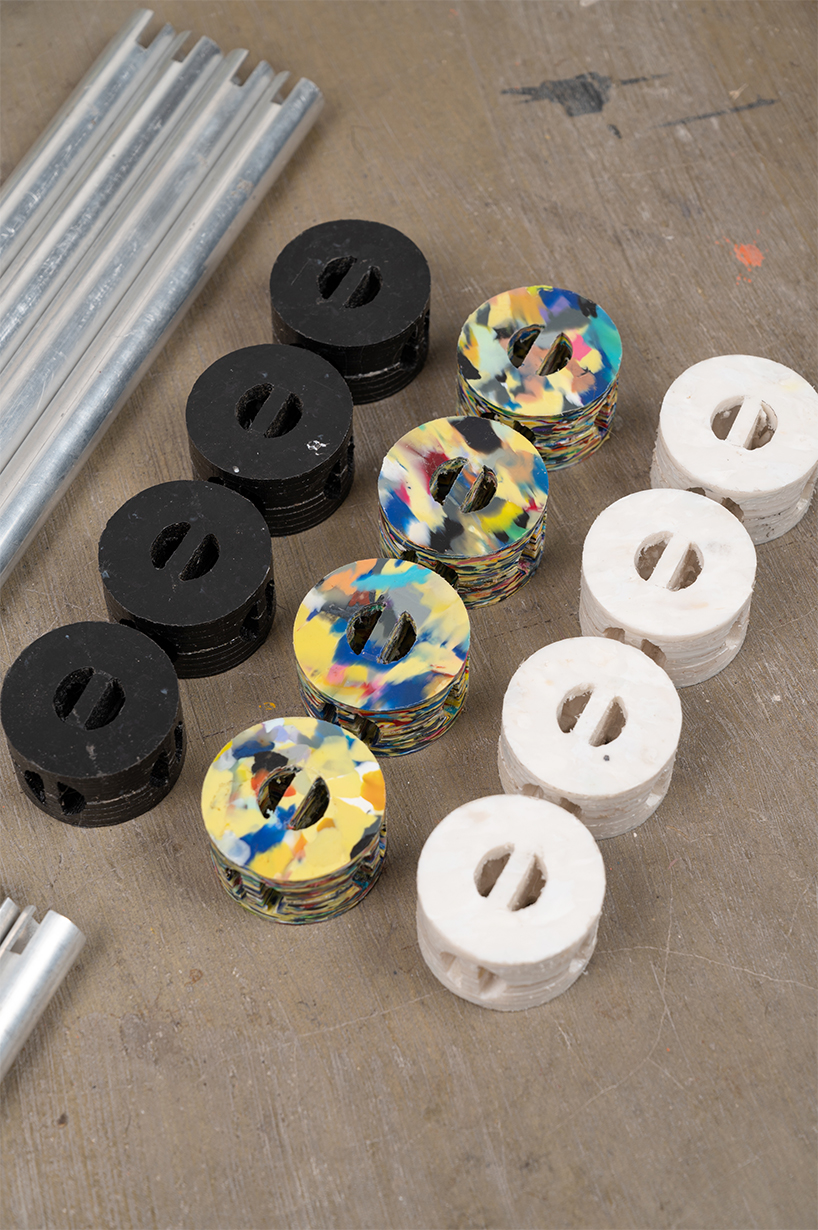COSMO PLAST reimagines recycled plastic as adaptive furniture
COSMOPLAST by Marcela Coppari is a modular design system developed using recycled plastic and aluminum components. The project addresses the environmental impact of plastic waste by incorporating it as a structural and aesthetic element in functional, adaptable furniture. The system integrates principles of reuse, modularity, and flexible assembly. The design consists of a set of geometric plates, like semicircles, circles, rectangles, and squares, in two different sizes. These are connected using aluminum tubes of varying heights (4.5, 20, 30, 42, and 72 cm) and 5 cm-diameter connector pieces made from recycled plastic. The system supports vertical and horizontal expansion, allowing multiple configurations such as tables, seats, and shelves.
Connections between elements are made through a press-fit system, which simplifies assembly and disassembly using a rubber mallet. Plates are perforated on their faces and edges to support multidirectional assembly. The connector elements define spatial joints and enable further extension in any direction, offering adaptable solutions for varied functional needs.

all images by Juan B. Arnaudo
Marcela Coppari’s COSMOPLAST follows Circular Design Approach
Each COSMOPLAST kit includes a plate module, aluminum tubes, and connectors, packaged in a compact, portable format using a textile bag and flat cardboard box. The materials used are R-PEAD recycled plastic and aluminum, both fully recyclable. The plastic components are CNC-machined, and aluminum parts are laser-cut and finished with epoxy paint. All components are handcrafted in Argentina, with plastic plate manufacturing by Necológica in Necochea. Designer Marcela Coppari’s approach emphasizes the integration of geometry, structure, and material reuse to create scalable, customizable objects that address sustainable design and responsible material use.

modular furniture system made from recycled plastic and aluminum

COSMOPLAST combines structural function with sustainable materials

geometric plate modules include circles, squares, rectangles, and semicircles

aluminum tubes in varying heights provide structural flexibility

press-fit connections simplify assembly without mechanical fasteners

each module connects using 5 cm recycled plastic joints










